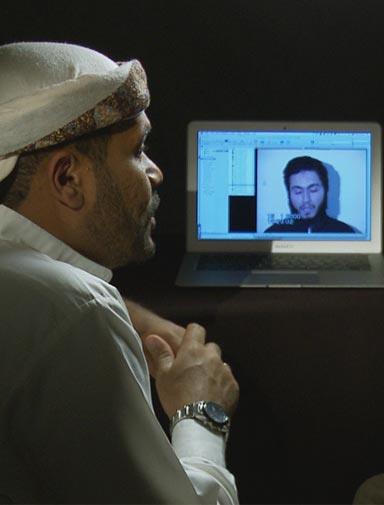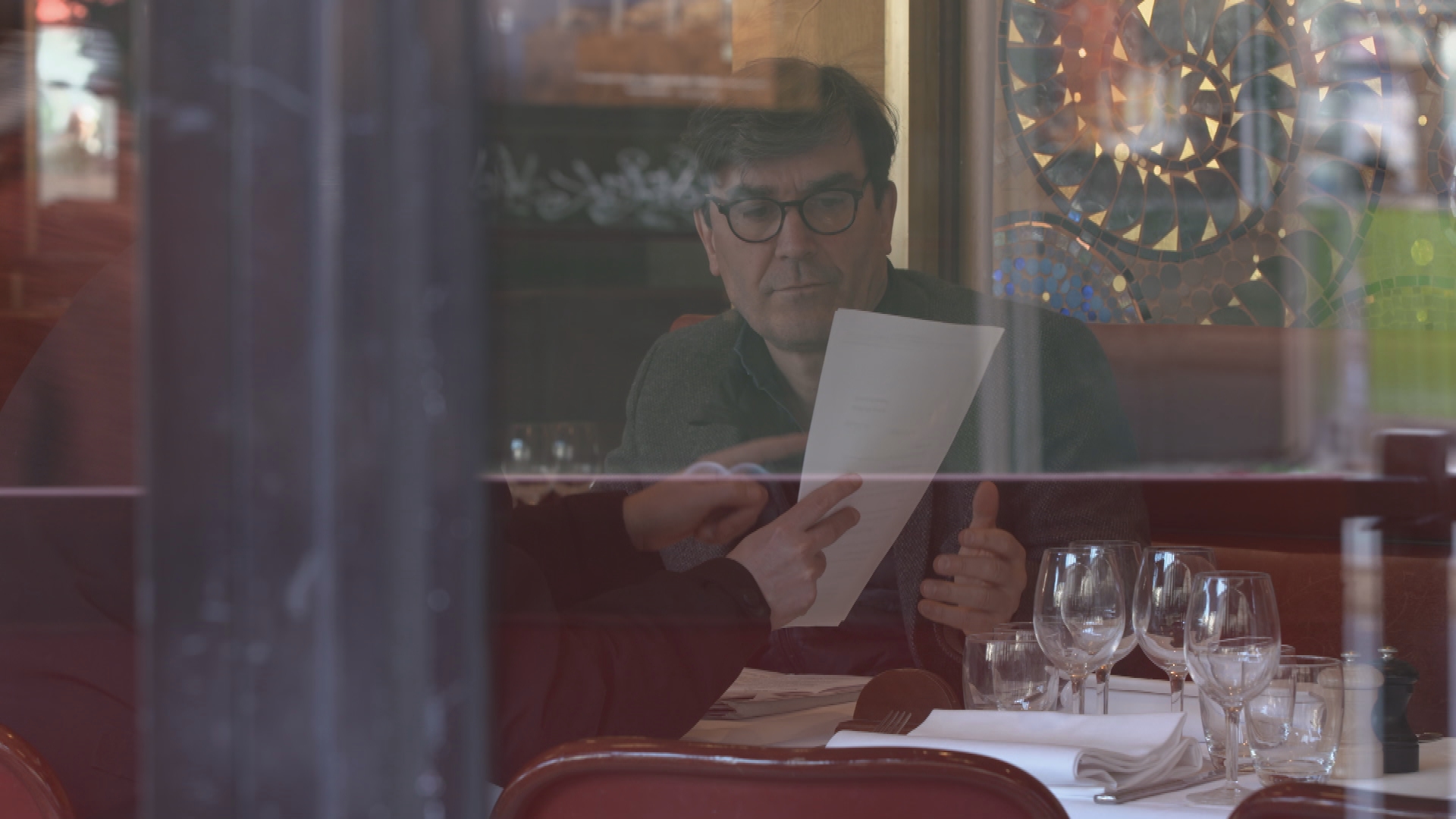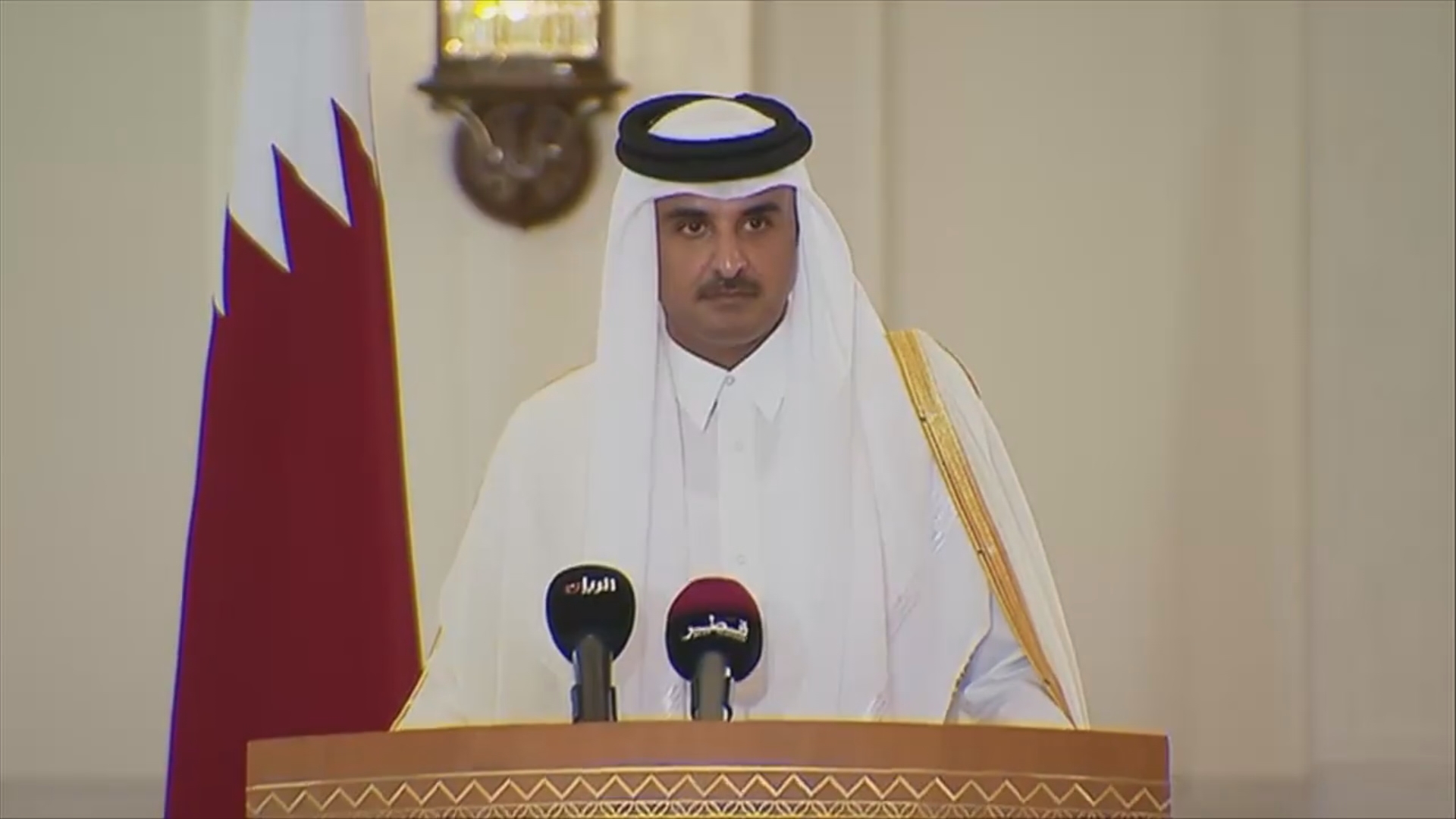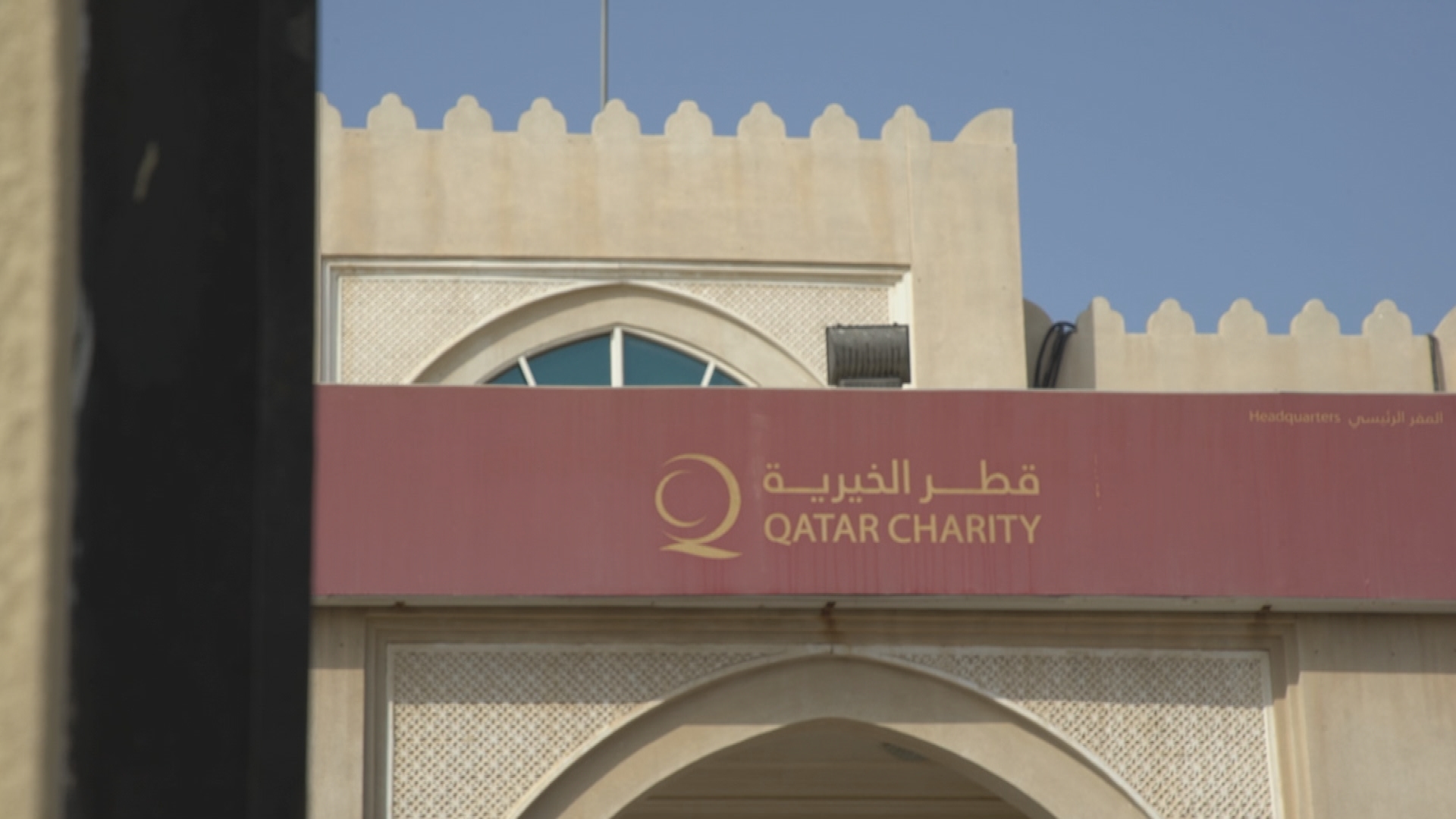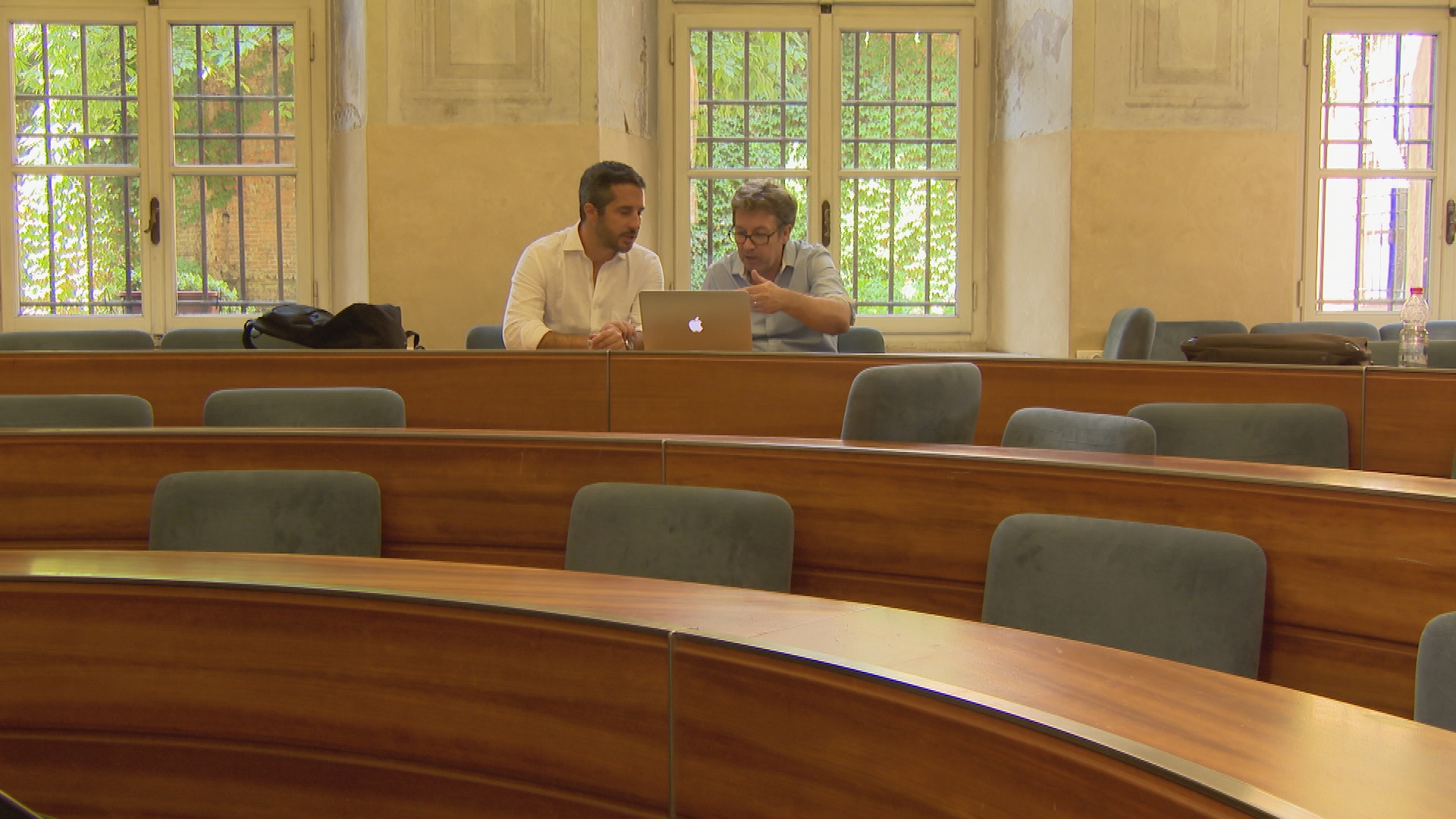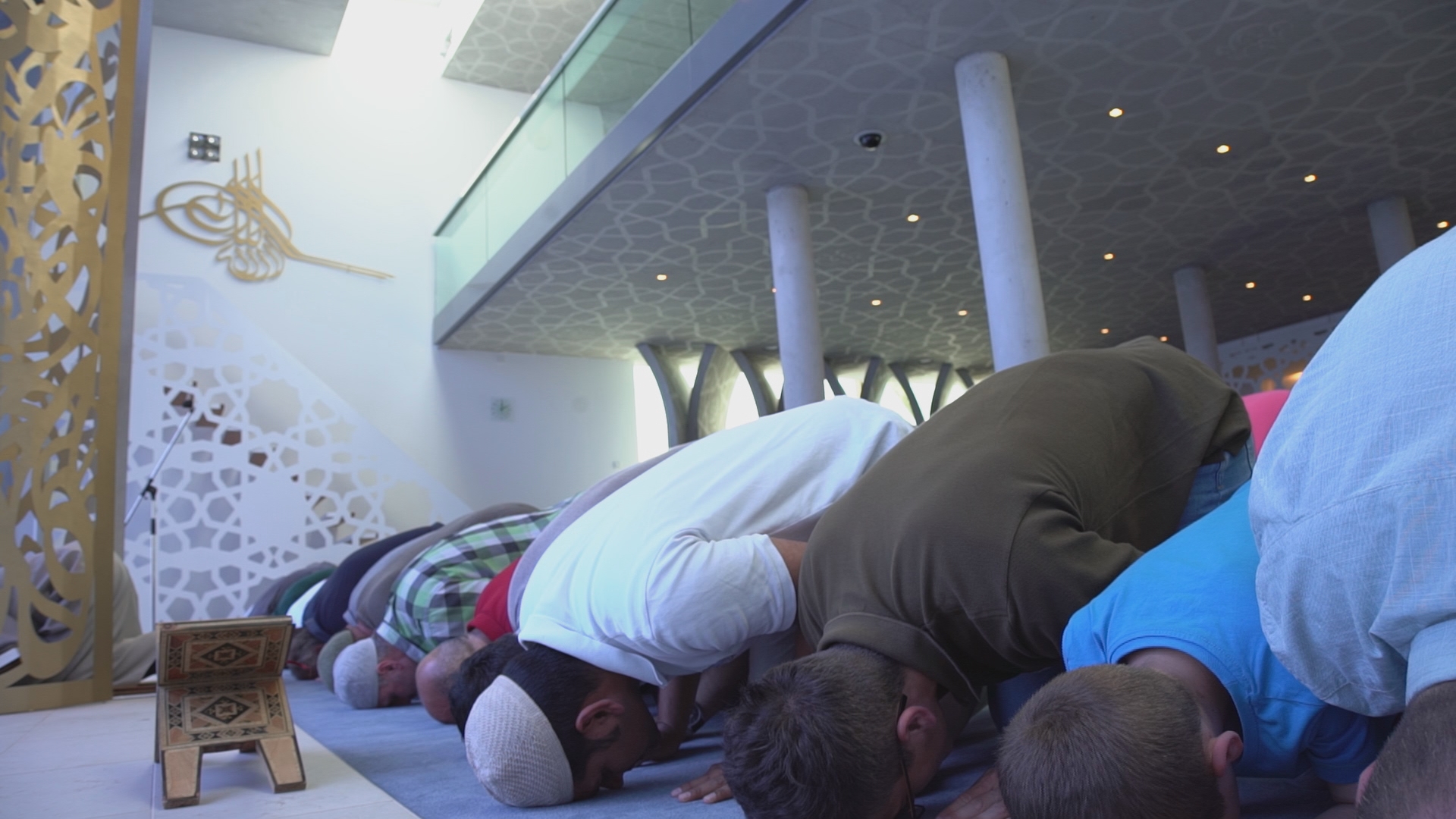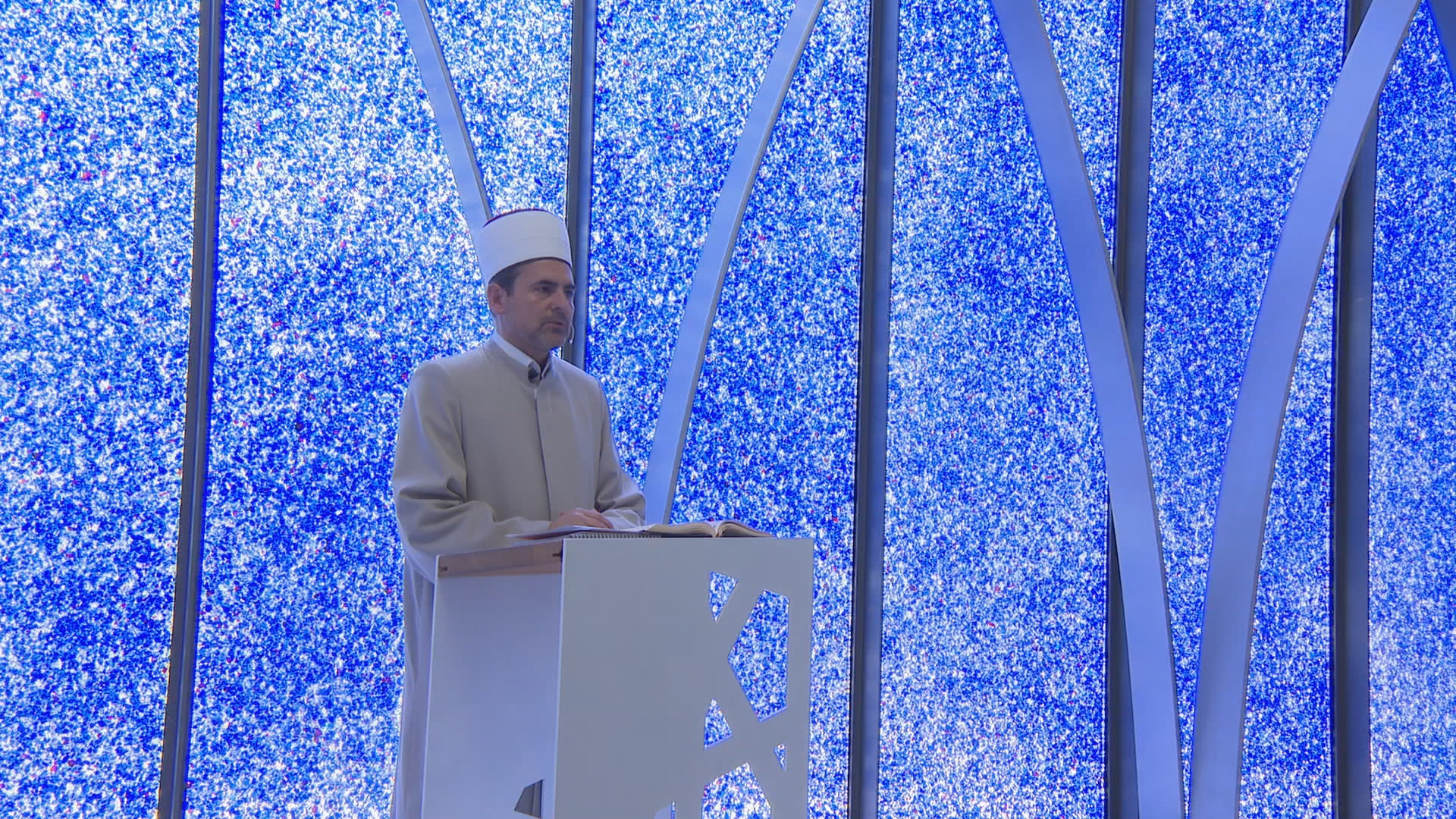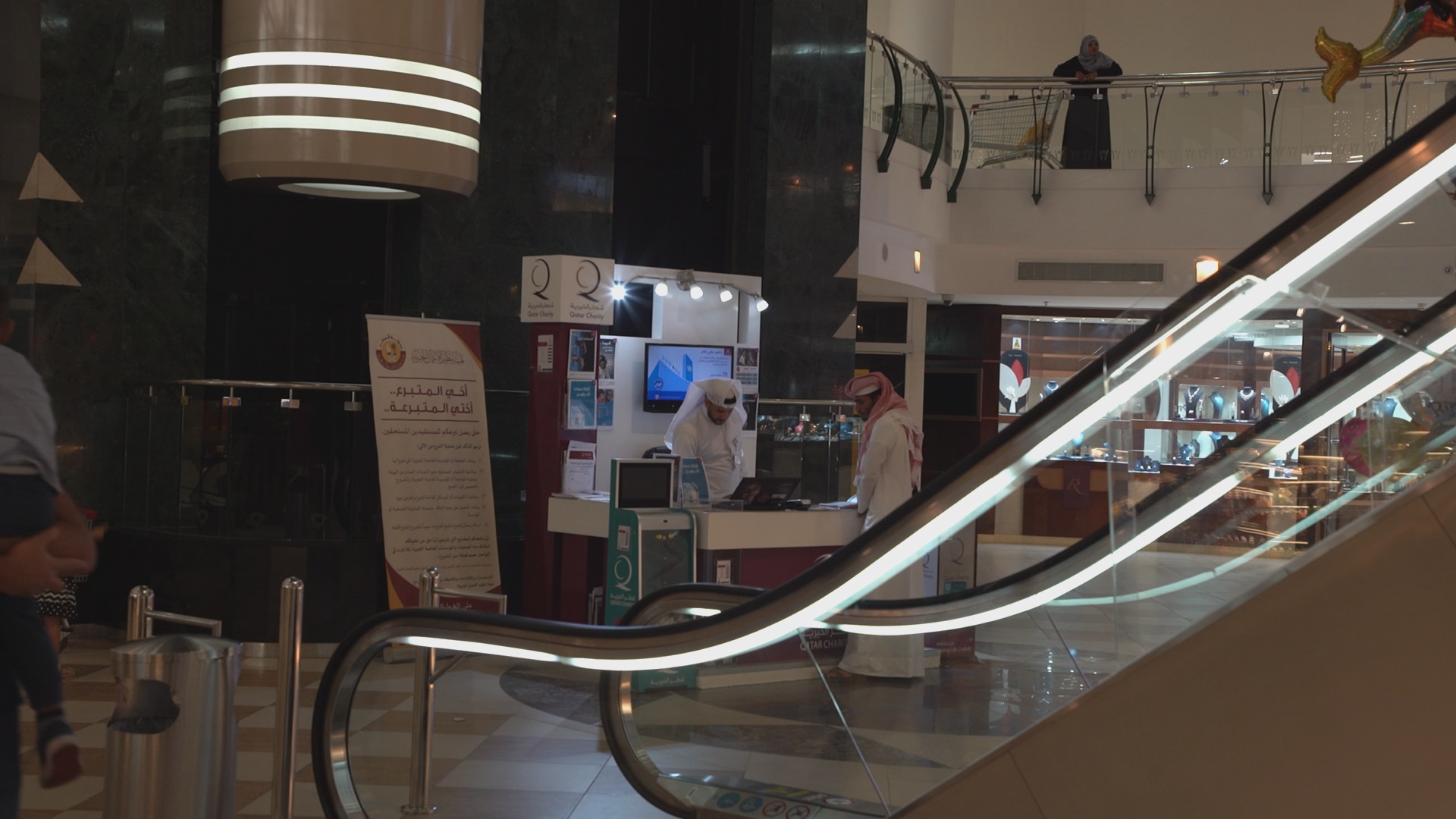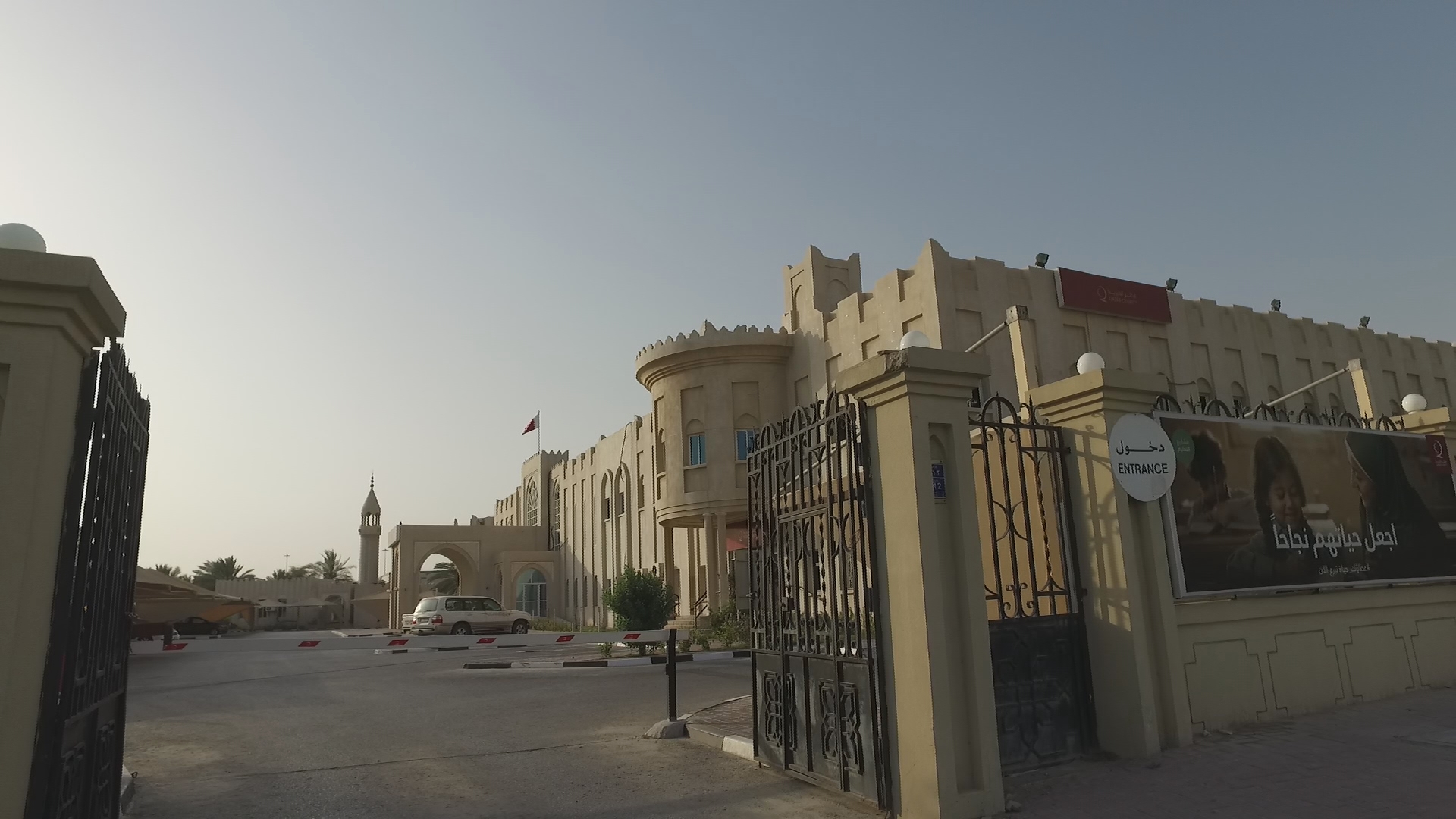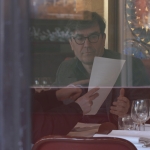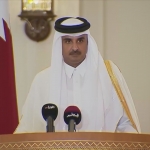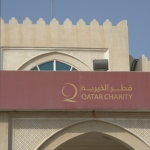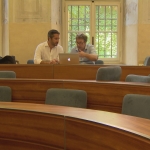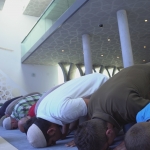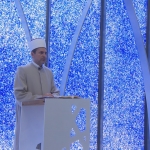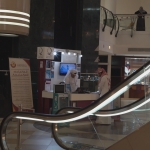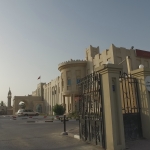QATAR, GUERRE D’INFLUENCE SUR L’ISLAM D’EUROPE
un film de Jérôme SESQUIN 2019
Réalisateur
en collaboration avec Jérôme SESQUIN
Réalisé par Jérôme SESQUIN
Produit par Adam LEIBOVITZ et Jean-François LEPETIT
Une coproduction FLACH FILM PRODUCTION – Arte France
Avec la participation de LCP-Assemblée Nationale – RTBF – RTS Radio Télévision Suisse – CNC
Avec le soutien de la Région Ile-de-France, en partenariat avec le CNC - Procirep – société des Producteurs
et de l’Angoa
Distribution internationale : Terranoa
REVUE DE PRESSE
Les précieux financements qatariens de l’islam en Europe
Qatar, guerre d’influence sur l’islam d’Europe, diffusé mardi 24 septembre à 20 h 50 sur Arte. Ce documentaire de Christian Chesnot et Georges Malbrunot, d’après leur livre, met en évidence le soutien financier du Qatar à des mosquées proches des Frères musulmans dans divers pays d’Europe.
Islam de France et d'Europe : le discret prosélytisme du Qatar au cœur d'un documentaire sur Arte
Après le livre, le documentaire télévisé. Arte diffuse ce mardi soir une enquête intitulée « Qatar, guerre d’influence sur l’Islam d’Europe ». Présentation avec Georges Malbrunot, l'un de ses auteurs.
Ces 400.000 euros versés par le Qatar à la future mosquée de Poitiers
C'est l'une des révélations de l'enquête "Qatar, guerre d'influence sur l'Islam d'Europe", diffusée mardi soir (20h45) sur Arte. La future grande mosquée de Poitiers a été financée à hauteur de 400.000 euros par la fondation Qatar Charity.
Qatar, Guerre d’influence sur l’Islam d’Europe. Un reportage à voir de toute urgence
Qatar, Guerre d’influence sur l’Islam d’Europe. Un reportage à voir de toute urgence. Révélant le financement par l’ONG Qatar Charity de projets de mosquées, de centres islamiques et d’écoles en Europe, tous liés aux Frères musulmans, une édifiante enquête au coeur des réseaux d’influence de l’émirat.
French Documentary Raises Eyebrows About Qatar’s Influence in Europe—and Beyond
onight, at 8 PM local time, a stunning documentary will air on the Franco-German television station ARTE, revealing how much influence Qatar exerts within Europe, funding a conglomerate of Islamist projects that all trace back to the Doha-based Muslim Brotherhood.
Les précieux financements qatariens de l’islam en Europe
Comment sont financées les mosquées qui s’ouvrent un peu partout en France et en Europe ? En partie par des ressources locales – celles des fidèles, parfois aidés par les mairies – mais aussi grâce à des dons venus de l’étranger, et notamment du Golfe. Basé sur une « clé USB » que leur a confiée « un lanceur d’alerte anonyme », ce documentaire de Christian Chesnot et Georges Malbrunot – qui fait suite à leur livre Qatar papers. Comment l’émirat finance l’islam de France et d’Europe (Michel Lafon, 2019) – a le mérite de mettre en évidence, chiffres à l’appui, la réalité et l’ampleur de ce soutien pour ce qui concerne le Qatar.Deux années d’enquête
Des financements absolument « légaux et officiels », comme l’affirme à raison la porte-parole du ministère qatarien des affaires étrangères. Mais alors pourquoi les dissimuler derrière une vitrine humanitaire – la Qatar Charity – et pourquoi sont-ils quasi systématiquement contestés par leurs bénéficiaires ? Le plus étonnant – et le plus gênant – est de voir chacun de ces responsables d’associations proches des Frères musulmans en France, en Italie ou en Suisse, nier avoir reçu le moindre centime… et feindre la surprise en lisant le relevé de compte que leur tendent les journalistes.
Ces deux années d’enquête confirment indubitablement la tentative du Qatar, au tournant des années 2000, de mener une audacieuse politique de communication et d’influence dans le domaine économique, sportif comme religieux. Manque toutefois l’analyse des conséquences idéologiques de ce soutien : quel discours est tenu dans ces mosquées et dans quelle mesure est-il influencé par l’islam wahhabite qatarien ?
Anne-Bénédicte Hoffner
Islam de France et d'Europe : le discret prosélytisme du Qatar au cœur d'un documentaire sur Arte
Pendant 90 minutes, les journalistes Christian Chesnot et Georges Malbrunot démontrent comment le petit – mais puissant – émirat est parvenu à tisser discrètement sa toile sur le Vieux continent, et notamment en France. Un travail de sape orchestré via Qatar Charity, une ONG présentée comme le bras armé du pouvoir.Grand reporter au Figaro et originaire de l’Allier, Georges Malbrunot a passé près de deux ans sur le sujet.
Le point de départ de votre travail, c’est une simple clé USB…
Oui, une clé que j’ai découverte dans mon courrier, en 2016. Il nous a fallu des mois pour traduire et examiner l’ensemble des données qu’elle contenait. Un tri considérable a été fait. Nous avons retenu le plus intéressant, c’est-à-dire les preuves de centaines de virements bancaires effectués par Qatar Charity pour financer 140 projets de mosquées, de centres islamiques ou d’écoles partout en Europe. Cela représente environ 100 millions d’euros sur une dizaine d’années. Dont une trentaine de millions d’euros rien qu’en France.
Quelle est selon vous la finalité de ce soutien financier??
L’argent vient alimenter les structures de la mouvance des Frères musulmans, tenants d’un Islam intégral. Leur chef spirituel est Youssef Al-Qaradawi, un prédicateur égyptien qui a tenu des propos terribles sur les femmes, les Juifs et les homosexuels.
Par le biais de ces financements, le Qatar achète donc de l’influence. Il s’impose comme un opérateur de l’Islam européen aux côtés d’autres pays plus traditionnels, comme l’Algérie, le Maroc ou la Turquie.
Le risque, justement, n’est-il pas de surévaluer le poids réel du Qatar, qui reste largement minoritaire??
Attention, nous ne disons pas que les Qatariens ont pris l’Europe d’assaut. On n’en est pas là. Mais la réalité, c’est qu’ils sont présents dans les plus gros projets récents ou en cours de mosquées en France. C’est le cas à Mulhouse, à Reims ou à Poitiers. Ils s’appuient aussi les réseaux locaux des Frères musulmans, qui irriguent l’ensemble du territoire et constituent des relais précieux.
Votre enquête a déjà été diffusée en Suisse et en Belgique. Certains y voient un « pamphlet anti-qatarien »…
Nous ne sommes pas tout dans une croisade contre le Qatar. Dans le film, nous avons d’ailleurs donné la parole à cinq reprises aux dirigeants de l’émirat. Notre travail est imparable parce qu’il est étayé par des faits et des preuves incontestables, et parce qu’il est contextualisé.
Propos recueillis par Stéphane Barnoin
Ces 400.000 euros versés par le Qatar à la future mosquée de Poitiers
Réalisé par les journalistes d'investigation Christian Chesnot et Georges Malbrunot, le documentaire "Qatar, guerre d'influence sur l'Islam d'Europe" raconte comment le richissime émirat gazier, déjà propriétaire du Paris-Saint-Germain, finance via sa fondation, la Qatar Charity, de nombreux lieux de cultes à travers la France. Diffusée sur Arte mardi soir à 20h45, l'enquête révèle notamment que la grande mosquée de Poitiers, en construction depuis 2003, a bénéficié de deux virements en date de 2012 d'un montant total de 400.000 euros."Je ne m'en rappelle pas du tout" dit l'imam de Poitiers
Un minaret et des salles de prières auraient donc été bâtis à Poitiers avec l'argent du Qatar ? "C'est un tissu de mensonges, nous n'avons pas reçu d'argent étranger", affirme, dans un premier temps, l'imam de la mosquée de Poitiers, Boubaker El Hadj Amor. Pourtant, l'enquête d'Arte révèle que "deux virements ont bien été effectués en 2012 par la fondation Qatar Charity à l'association des musulmans de Poitiers pour le projet de mosquée".
Devant le fac-similé des relevés bancaires, documents confidentiels obtenus par les journalistes d'investigation, l'imam de la mosquée de Poitiers est contraint de le reconnaître : "Oui, [ces 400.000 euros] sont venus dans notre compte, probablement (...) honnêtement je m'en rappelle pas du tout".
"L'islam proposé par le Qatar n'est pas celui des Lumières", rappelle Christian Chesnot
Déplorant "la malhonnêteté" des auteurs du documentaire, Boubaker El Hadj Amor finit toutefois par admettre que le Qatar a bien aidé financièrement le chantier de la mosquée de Poitiers. "Ce financement des travaux provient des dons des fidèles et du propriétaire qui est l'ex-UOIF (Ndrl, Union des organisations islamiques de France), actuellement Musulmans de France, et nous avons obtenu une aide de cette fédération. Après coup, il s'est avéré que [cet argent ] vient du Qatar et ça ne me gêne absolument pas", explique l'imam, par ailleurs ancien trésorier national de l'UOIF dans les années 2000.
La mairie de Poitiers préfère ne pas s'exprimer sur le sujet
Interrogée, la mairie de Poitiers ne souhaite pas faire de commentaire sur le sujet. Le financement des lieux de culte par une puissance étrangère interpelle au contraire Christian Chesnot. "Ça pose question, acheter un club de foot, en l'occurrence le PSG, ou bien des hôtels, ce n'est pas pareil que d'investir dans des mosquées, dans des lycées musulmans ou des centres de formation des imams." Images d'archives à l'appui, les auteurs du documentaire démontrent qu'au delà de l'argent, le Qatar, via sa fondation, promeut une conception d'un islam "rétrograde et communautariste".
Exilé à Doha, capitale du Qatar, "le pape des Frères Musulmans, le cheikh Youssef al-Qaradawi tient, lors de ses nombreux prêches à la télévision qatarie, des propos sur les femmes et les homosexuels qui sont inacceptables", relève Christian Chesnot. Pour preuve, en 2009, al-Qaradawi déclarait au sujet des Juifs : "Tuez-les tous, jusqu'au dernier".
Boubaker El Hadj Amor reconnaît "des difficultés" sur la question des droits de l'homme au Qatar, "mais en France aussi", insiste-t-il. "Les 400.000 euros pour la mosquée ont été versés sans aucune contrepartie, ni prosélytisme. D'ailleurs, je ne connais rien à ce pays, le Qatar", assure l'imam de Poitiers. Et cette interview accordée à une chaîne de télévision qatarie? "Une erreur", confesse Boubaker El Hadj Amor.
Jules Brelaz
Qatar, Guerre d’influence sur l’Islam d’Europe. Un reportage à voir de toute urgence
À l’origine de cette investigation, une clé USB, livrée en 2016 par un lanceur d’alerte aux journalistes Georges Malbrunot et Christian Chesnot, laquelle contient des milliers de documents confidentiels émanant de l’opaque Qatar Charity, une ONG fondée en 1992 et aujourd’hui présente dans soixante-dix pays. Listes de donateurs (dont des membres de la famille régnante Al-Thani), virements bancaires, mails… : cette fuite sans précédent révèle l’offensive prosélyte de l’émirat en Europe, la puissante organisation finançant quelque cent quarante projets de mosquées, de centres islamiques et d’écoles, tous liés à la nébuleuse des Frères musulmans. Malgré les dénégations de Doha concernant cette implication religieuse, les journalistes ont enquêté pendant deux ans sur le terrain pour mettre au jour l’influence du Qatar sur l’islam du continent. Du centre islamique An-Nour à Mulhouse, le plus grand chantier en Europe dans une région frontalière qui compte 200 000 musulmans, au dispositif d’accueil des migrants en Sicile en pleine crise syrienne en passant par le musée des Civilisations de l’islam (Mucivi) en Suisse ou encore un centre de formation des imams à Château-Chinon, ce film plonge au cœur de ces réseaux, traversés par la même idéologie.Discret noyautage
Quelle stratégie tente de déployer le Qatar par le biais de cette aide aux communautés musulmanes d’Europe ? Ce discret noyautage ne cache-t-il pas sa volonté d’imposer sur le continent l’islam politique prôné par les Frères musulmans, cette confrérie radicale née en Égypte en 1928 ? En 2018, à la conférence de Paris « No money for terror », l’émirat, sur la sellette, a annoncé officiellement des mesures pour mieux contrôler ses organisations caritatives. Mais cette enquête souligne aussi combien le financement qatari de l’islam en Europe est venu combler le vide laissé par les États concernés, autorisant ces inquiétantes dérives.
Breizh-info.com, 2019
French Documentary Raises Eyebrows About Qatar’s Influence in Europe—and Beyond
The 91-minute French documentary Qatar, guerre d’influence sur l’Islam d’Europe (Qatar’s War of Influence over Islam in Europe) is based on a groundbreaking 295-page book published earlier in this year called Qatar Papers: How the State Finances Islam in France and Europe, authored by French investigative journalists George Malbrunot and Christian Chesnot.Both Malbrunot and Chesnot are prominent experts on political Islam and the Arab World. They skyrocketed to international fame shortly after the 2003 US-led invasion of Iraq, when they were both kidnapped and held captive in Iraq for five months. This is their third book on Qatar after Les secrets du coffre-fort (Secrets of the Safe) published in 2013 and Nos tres chers emirs (Our Very Dear Emirs) published in 2016. Gathering information and testimonies for their new book, they traveled to France, Germany, Switzerland, Kosovo, the United Kingdom, and, of course, Qatar itself.
Both the book and its complimenting documentary are mostly based on a flash drive that the two authors received from a whistleblower three years ago, packed with 140 secret documents from the database of the Qatar Charity, a Doha-based NGO that was set up—ostensibly for humanitarian purposes—back in 1992. According to its founding charter, its original objective was to help Muslim orphans from the Soviet-Afghan War, but it seemingly has since outgrown that task, significantly, setting up an extensive network of Islamic centers, mosques, libraries, and think-tanks across the world. This is not surprising. One year after its formation, long before the two French authors started work on their Qatari trilogy, Osama Bin Laden referred to the Qatar Charity as “one of the several organizations that were used to fund Al-Qaeda’s overseas operations”.
Across the Cities of Europe
According to the newly revealed secret documents, which range from cheques and money transfers to official letters and correspondences, the Qatar Charity used its influence to finance 140 projects across Europe, 90% of which were linked, in one way or another, to the Muslim Brotherhood. Their projects spread from Norway to the coast of France, at a staggering cost of 120 million Euros. They included 47 Islamic projects in Italy, eleven in Spain, 22 in France, and ten in Germany. In the city of Lille, for example, located on the northern tip of France, they donated money to the Ibn Rushd School, and then to another private Islamic school in the southern city of Bordeaux. In the UK, they set up a regional headquarters for their activities in 2012, based in the posh Mayfair neighborhood in central London, since renamed Nectar Trust.
The documentary takes us to the gates of Al-Nour Center in Mulhouse, France, the second largest city in the Alsace region. This is where Qatar Charity has set up the Al-Nour Islamic Center, with its own swimming pool, supermarket, medical center, and mosque, fit to accommodate 2,300 worshipers in two prayer rooms, one for men and one for women. Much of the fund-raising for the project was made by Shaykh Yusuf al-Qaradawi, the Doha-based 94-year old Egyptian ideologue of the Muslim Brotherhood. The project was carried out via the Association des Musulmans d’Alsace (AMAL), whose president, Nasser al-Kady, appears in the documentary, speaking frankly about its facilities and services.
On the island of Jersey in the English Channel, the Qatar Charity set up a mosque—although fewer than 400 people live there—and during the years 2011-2014, channeled up to 3.6 million Euros to Switzerland, used to fund the Muslim Cultural Complex in Lausanne, the Museum of Islamic Civilisation in La Chaux-de-Fonds in the canton of Neuchâtel, and the Saladine Mosque in Bienne (canton of Bern). All these projects aim at creating an Islamist incubator for the Muslims of Europe, which surrounds them all their life, from birth to death, through elementary, middle, and high school, running through university, work, and retirement, all against the backdrop of a sound Islamic education.
Rare Footage from Brotherhood History
In all of their libraries scattered across European cities, copies of Shaykh Qaradawi’s works were perched neatly on shelves, along with those of Sayyed Qutb, the famed Egyptian Islamic philosopher who was hanged by President Gamal Abdel Nasser back in 1966. The documentary takes us back to the founding of the Brotherhood in Egypt back in 1928, at the hands of Imam Hasan al-Banna, who strove to achieve two things: liberate his country from British rule and create a state based on the laws of Islamic shari’a. Rare black-and-white footage is shown of Qutb standing trial, along with an amusing speech by President Nasser, addressing a crowd sometime in the 1960s.
Nasser is seen saying: “I met the Secretary-General of the Muslim Brotherhood. He said to me: ‘You have to impose the hijab on Egypt and make it compulsory for every woman walking on the streets to wear one’. I said to him: ‘Sir, you have a daughter at medical school. She is not covered. If you cannot make your own daughter wear the hijab, how do you expect me to impose it on 10 million Egyptians?’ ”
Attempts at Aborting the Documentary
As George Malbrunot explained to EER, none of the funds that were sent to Europe were channeled in an illegal manner. “The funds were wired in a very sophisticated and legal manner, without breaking the law”, said Malbrunot. Asked about Doha’s reactions to the documentary, he added: “Qatar was apparently nervous, fearing consequences for its image.” The country has spent billions, after all, on carefully crafting its image as a modernized nation, thanks to gushing revenue from its massive gas reserves. In 1996, it set up the world-famous Al-Jazeera satellite television station, and three years later gave women the right to vote, a pioneering move among its neighbors on the Gulf. In 2005, it penned its first constitution and in 2008 set up the first Roman Catholic Church, two years before being selected to host the 2022 FIFA World Cup.
Malbrunot added: “According to the French satirical weekly Le Canard Enchaîné, Qatar sent a letter to ARTE saying: ‘By broadcasting the documentary, you will participate in the war imposed on us by neighbors (in reference to Saudi Arabia, Bahrain, and the United Arab Emirates)’.” They tried and failed, he says, to purchase international broadcast rights for the work, in order to pull it off the air.
The emir of Qatar, Shaykh Tamim al-Thani, has come under increased pressure from Saudi Arabia and the UAE to sever his links to the Brotherhood and its affiliate groups like Hamas in Gaza and the Justice and Development Party (AKP) in Turkey. He has refused to expel Al-Qardawi from Doha or to deny Brotherhood affiliates access to the studios of Al-Jazeera, resulting in a boycott, led by Saudi Arabia, since June 2017. At a press conference with French President Emmanuel Macron, when asked about Qatar’s dodgy funding for Islamic groups, Tamim said: “Some of what is being said about Qatar is incorrect. What is true is that measures are being taken by Qatar to prevent the financing of terrorism.”
Several important figures are interviewed in the documentary, like UAE Foreign Minister Anwar Gargash, who appears affirmatively says: “The link (between Qatar and the Muslim Brotherhood) is very clear.” This is denied by his Qatari counterpart, Mohammad Bin Abdulrahman al-Thani, who appears next. Yet according to the classified information obtained by Malbrunot and Chesnot, much of the funding came from the Diwan al-Amiri, the office of Emir Tamim’s father and predecessor Hamad al-Thani, and the Qatar Foundation, which is run by Hamad’s wife and mother of the current emir, Shaykha Moza Bint Nasser al-Misned. One document shows that her foundation payed Tariq Ramadan, one of the most important Islamist ideologues in Europe (and the grandson of Al-Banna), a monthly salary of 35,000 Euros, ostensibly to hire a legal team to defend him against accusations of rape back in 2017. He was forced to leave his job at the University of Oxford, relocating to Doha where he now teaches at the Hamad Bin Khalifa al-Thani University and chairs the Research Center of Islamic Legislation.
“The documents revealed in the program are just the tip of the iceberg”, said prominent Kuwaiti journalist Fouad Hashem, who spoke to EER after watching the French production. “Ultimately, Qatar and its Turkish allies want to create what they see as ‘constructive chaos’ in the region, through the Muslim Brotherhood. Turkey supports them militarily while Qatar provides logistic and financial help.” When asked how Doha can carry on with such a policy, given that it has badly damaged the reputation of the country and its emir, Hashem replied: “This doesn’t really matter to them. If cornered, they are always ready to say: ‘It wasn’t us! It was some former official or citizen, but not the emir nor any person from his family or surrounding. It was anybody but us!’”
Sami Moubayed, a Syrian historian and former Carnegie scholar, author of “Under the Black Flag: At the frontier of the New Jihad”
VOUS AIMERIEZ
